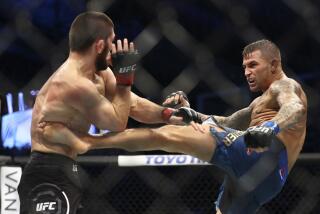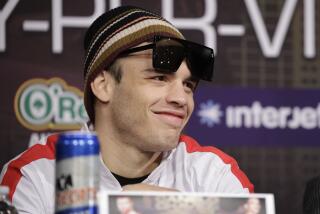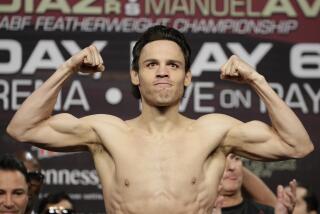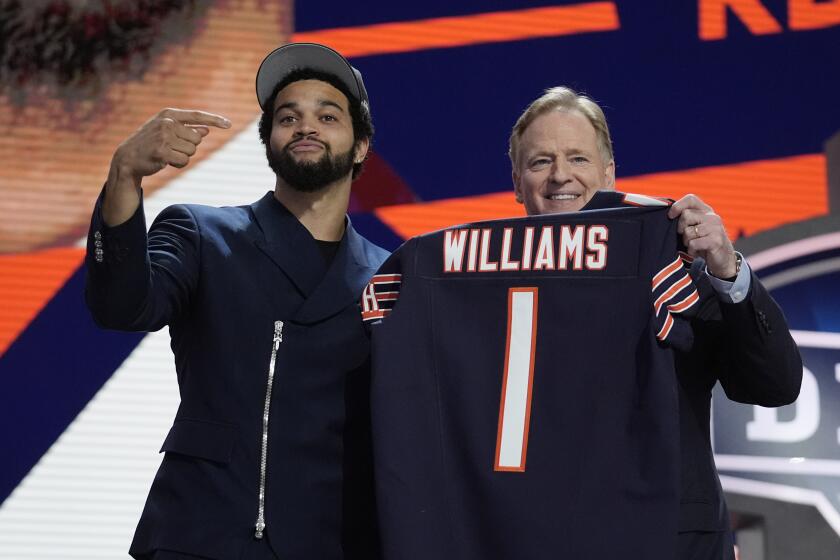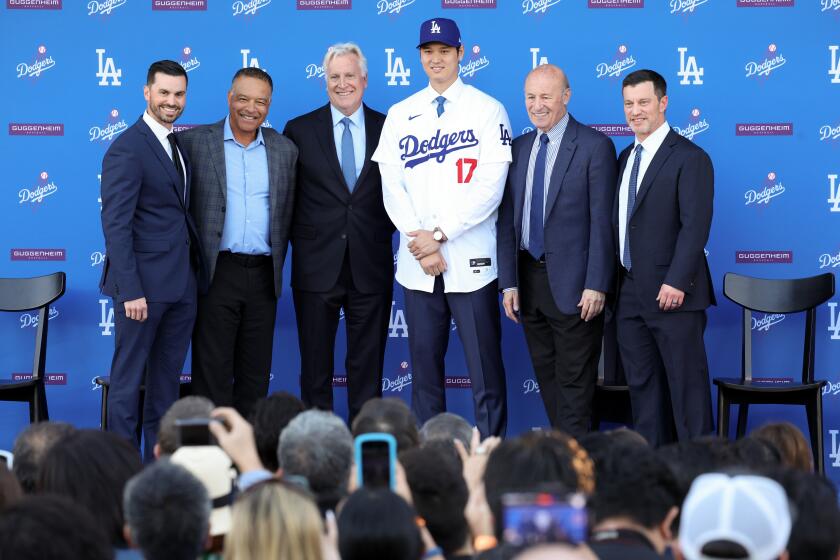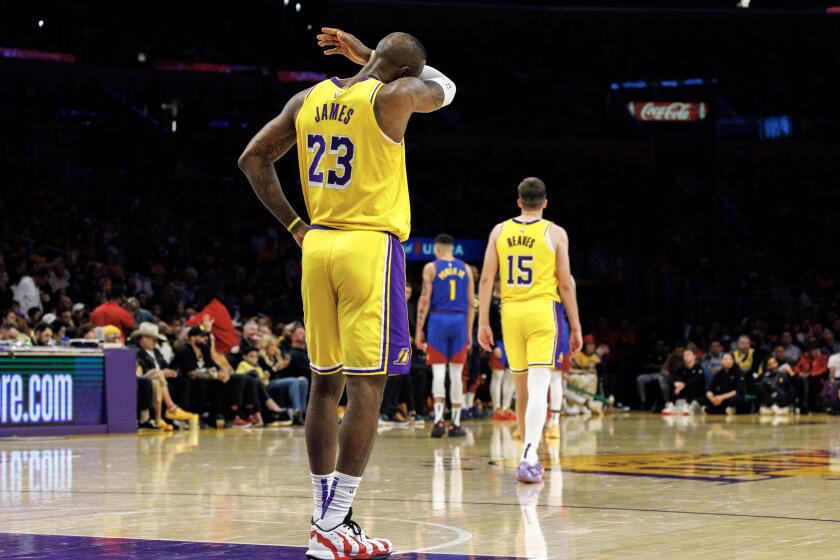UFC grapples as positive drug tests come to light after lucrative fights
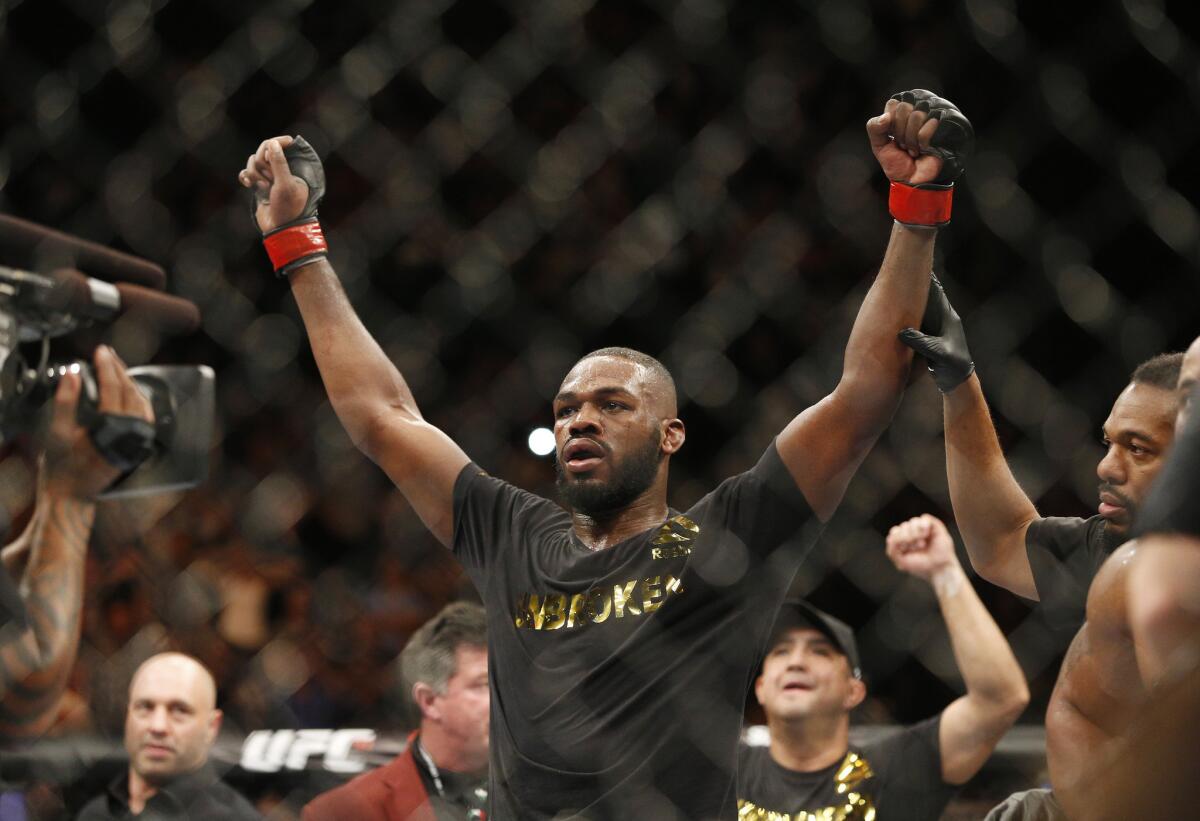
Some of the Ultimate Fighting Championship’s most celebrated fighters tested positive for steroids, cocaine and marijuana in the last two months, with the results being released soon after their lucrative fights, creating a public relations problem for the biggest mixed martial arts promoter.
UFC light-heavyweight champion Jon Jones tested positive for cocaine a month before his Jan. 3 title defense. UFC officials knew of the positive test but allowed Jones to go ahead with his schedule bout in Las Vegas because non-prescription drugs found in out-of-competition testing do not warrant a suspension. Jones, who collected a purse of nearly $1 million, won a unanimous decision over the previously unbeaten Daniel Cormier.
Former longtime UFC middleweight champion Anderson Silva failed two drug tests for steroids — one taken before and one after his Jan. 31 main event in Las Vegas against Nick Diaz.
Silva, 39, who earned $800,000, defeated Diaz by unanimous decision. It was a stirring victory for Silva in his first bout since he suffered a broken leg in a December 2013 title loss.
But days after Silva’s fight, the Nevada State Athletic Commission reported the former champion tested positive for two anabolic steroids in a sample provided in a surprise test 22 days before the fight.
In Silva’s post-fight drug test Jan. 31, he also tested positive for the anabolic steroid Drostanolone and he faces a disciplinary hearing before the Nevada commission in the near future. Meanwhile, Silva’s opponent Diaz, in his post-fight drug test, was found to have marijuana in his system.
UFC pocketed millions in pay-per-view and live-gates for the Jones and Silva bouts.
“I was a ring physician when the UFC started, I worked to help get MMA licensed and this makes me sad,” said Dr. Margaret Goodman, who heads Nevada’s Voluntary Anti-Doping Authority. “By not stopping these fights, people now think it’s a dirty sport.”
World Anti-Doping Agency Director General David Howman said the UFC has not signed on to the WADA code. The Nevada commission relies on language in the ode to choose various standards, such as how it treated Jones’ positive cocaine test. Under the WADA code, athletes face a a four-year suspension for a positive steroid test.
“They say they’re doing it the way we do. They’re not,” Howman said. “If they want to show they’re proven to be people who look at the code, sign up.”
“UFC is disappointed to learn of these initial results,” the company said in a statement after Silva’s pre-fight steroids test result. UFC Chairman Lorenzo Fertitta and company President Dana White will have a news conference Wednesday in Las Vegas to address the recent positive drug tests.
Bob Bennett, the Nevada commission’s executive director, said Silva was able to go ahead with his fight because the commission was negligent to attach a rush request on Silva’s sample to the WADA-accredited lab in Salt Lake City that analyzed it.
Nevada will expedite future tests, Bennett said. “You live and learn. … To think for one second that we would consider [intentionally delaying the report] … it’s ludicrous,” he said.
Jones received a $25,000 fine from the UFC for a code-of-conduct violation after he tested positive for cocaine, but he is proceeding toward a summer fight against Anthony Johnson.
Although other major sports take a harsh stand on cocaine — the NBA can ban a player for life based on one positive result — Nevada leaned on the WADA code language in the Jones case. Howman said the agency debated how to punish athletes who test positive for cocaine and opted not to discipline those who fail an out-of-competition drug test because cocaine doesn’t produce performance-enhancing effects.
Jones’ cocaine result was known to Nevada commissioners on Christmas Eve, prompting commission Chairman Francisco Aguilar to alert UFC executives. Aguilar added the out-of-competition test was for performance-enhancing drugs and inadvertently searched for cocaine.
UFC president White said he didn’t consider stopping the Jones-Cormier fight.
Jones passed a physical and was cleared “by a doctor and he was OK to fight,” White said. “We can’t call the fight off. He was 100% healthy, went through all kinds of tests.”
Jones defeated Cormier to retain his belt and news of his positive drug test came out two days later. Jones released a statement he was entering a drug treatment facility, where he spent one night.
“I did feel like he needed help,” White said. “I feel if you’re doing that, three weeks out before the biggest fight of your life, no matter what the reason is, you need to talk to somebody.”
Jones-Cormier generated a live gate of $3.7 million and an estimated 750,000 pay-per-view buys at $50 apiece, or approximately $37.5 million.
The Silva-Diaz bout was also a financial success, with in excess of 600,000 pay-per-view buys and a $4.5-million live gate, White said.
It’s clearly not in the UFC’s best interest to cancel fights. But White and the commission’s Bennett argue the organization is “light years” better than it was previously in seeking out drug cheaters.
Goodman’s private company, VADA, has presided over drug screening in boxing and made a pitch to the UFC to construct a consistent testing and penalty plan that can be relied on worldwide.
“The problem is there’s no uniformity,” Goodman said. “Every [athletic] commission is different. … There needs to be some semblance of a policy. The UFC has whereabouts information on its fighters, they could start a program.”
“No one wants to see fights canceled and a four-year suspension under the WADA code seems too excessive, but there has to be a point where you say, ‘This is what we have to do,’ ” Goodman said.
White said he “didn’t feel great about” promoting the Jones fight, knowing the cocaine test results would become public afterward.
“We’re always going to be in a position where we make decisions and not everyone is going to love the decisions we make,” White said. “But if I let that stuff drive me crazy, I’d have jumped out the window a long time ago.”
Follow Lance Pugmire on Twitter @latimespugmire
More to Read
Get our high school sports newsletter
Prep Rally is devoted to the SoCal high school sports experience, bringing you scores, stories and a behind-the-scenes look at what makes prep sports so popular.
You may occasionally receive promotional content from the Los Angeles Times.
